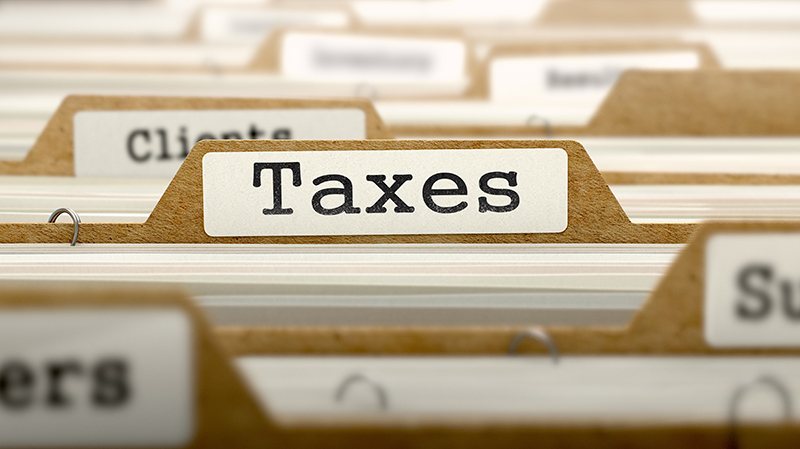How do I file taxes when I haven’t in years?
March, 02 2021 by Jean Lee Scherkey, EA
If I haven't worked in a couple of years and didn't file taxes or get the first stimulus check, then where do I start or how do I file? I need to know step by step how to do this. I have been a widow for a couple of years.
-Yvette
Dear Yvette,
Thank you for submitting your question! I am glad you reached out. Often, I have found the most challenging step when resolving an issue is asking for guidance. Your question not only empowers you to be proactive but will help others who have the same questions.
Let’s start with some basics. Generally, depending on filing status (Single, Head of Household, Married Filing Joint, etc.) and income level, a person may have an income tax filing requirement. You mention being a widow and that you have not worked or filed returns in the last couple of years. (My heartfelt condolences on the loss of your spouse.) There was no comment on whether you have children you support or other dependents like a parent. Based on this information, I am going to assume that your filing status is Single. For 2019, a taxpayer who was under age 65 at the end of the year has a filing requirement if their gross income was at least $12,200. Gross income includes wages, self-employment income, investments income, rental income, retirement distributions, Social Security retirement benefits, gambling income, etc., without consideration of any possible deductions. In 2020, a taxpayer filing Single and under age 65 must file a return if their gross income reached $12,400. Folks age 65 and over had a filing requirement in 2019 if their gross income was $13,850 or more. The gross income filing amount for those age 65 and older for 2020 was $14,050.
There are situations where a person may need to file a tax return even if their gross income is less than the filing requirement. These situations include:
- Having net income (gross income minus allowable expenses) from a self-employment activity of at least $400;
- Earning wages of $108.28 or more from working at a church or qualified church-controlled organization (an example may be a preschool that the church runs) that usually is exempt from withholding employer Social Security and Medicare taxes;
- If you had medical insurance through a Marketplace during the year and received advance payments of the Premium Tax Credit; or,
- Received tip income that was not reported to your employer. In addition to the income tax due on the tips received, Social Security and Medicare taxes must be collected.
Please review IRS Publication 501 Dependents, Standard Deduction, and Filing Information for a complete list.
If your gross income was under the filing requirement and you do not fall into one of the other situations where you may have a filing requirement, you may still want to file an income tax return for 2020 to claim the Recovery Rebate Credit. Due to the COVID-19 pandemic and a subsequent economic downturn that rivals the Great Depression, Congress passed economic relief packages that contained two rounds of Economic Impact Payments. In the first round, qualifying persons received a maximum of $1,200, and in the second round, the maximum a qualifying individual could receive was $600. Taxpayers who would qualify for the Single filing status on their 2020 income tax return could have modified adjusted gross income (total reportable income minus certain expenses) of up to $75,000 and still be entitled to receive the full payment. For Single filing status taxpayers whose modified adjusted gross income was more than the threshold, the benefit amount would decrease by $5 for each $100 that exceeded $75,000.
To get the money in the hands of people as quickly as possible, the IRS based a person’s eligibility on their 2018 or 2019 tax information. Those not required to file income tax returns and who received Social Security retirement, disability, or survivor’s benefit income, veteran’s benefits, or Railroad retirement income should have received both economic impact payments in the same manner they receive the above benefits. If you are a recipient of one of these benefits and did not receive one or both of the economic impact payments, the IRS has an online account system that will confirm whether payments were issued. It should also indicate how the IRS distributed the payment, whether by check, directly deposited into a bank account, or issued on an EIP Card that works like a debit card.
What happens if you go online and discover the IRS issued a payment to you and you never received it? There could be several reasons why the payment did not reach you. Some situations include the check being deposited into a closed bank account, your mailing address changing since the last time you filed a return, or the payment being unintentionally lost in the mail. If the IRS issued you an EIP Card and you did not receive it, please review the EIP Card page on the IRS website. The IRS also has tracing procedures in place to help taxpayers whose payments were issued but never received. Please review the payment trace instruction page on the IRS website for more information on how to request a trace.
Those who did not have a filing requirement in 2018 or 2019, do not receive any of the above benefits, and are not claimed as a dependent on someone else’s return, will need to file a 2020 federal income tax return to claim the Recovery Rebate Credit. Anyone who received a partial credit and believed they qualify for a larger amount should also file a 2020 federal income tax return, even if they do not have a filing requirement. Both economic impact payments are considered advances of the Recovery Rebate Credit. The IRS recommends people submit their 2020 income tax return via electronic filing and request the refund to be directly deposited into their bank account. This is the fastest method to receive the Recovery Rebate Credit. For more information on how to submit a 2020 federal individual income tax return, please review the “Recovery Rebate Credit - Topic A: Claiming the Recovery Rebate Credit if you aren’t required to file a tax return” page on the IRS website.
Not sure how to file a return? TurboTax has customer support representatives, and tax professionals are ready to help you file your return. Additionally, for those who qualify, TurboTax offers a Free Edition where there is no charge to prepare and electronically file your 2020 federal and one state income tax return.
We hope the above information is beneficial and that 2021 brings financial success.
Wishing you many happy returns,
Jean





